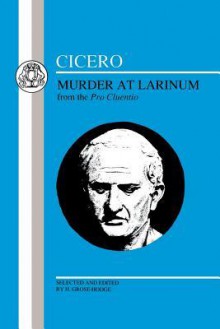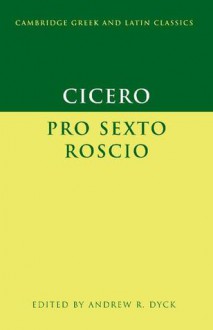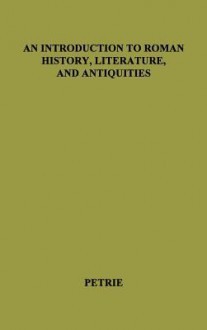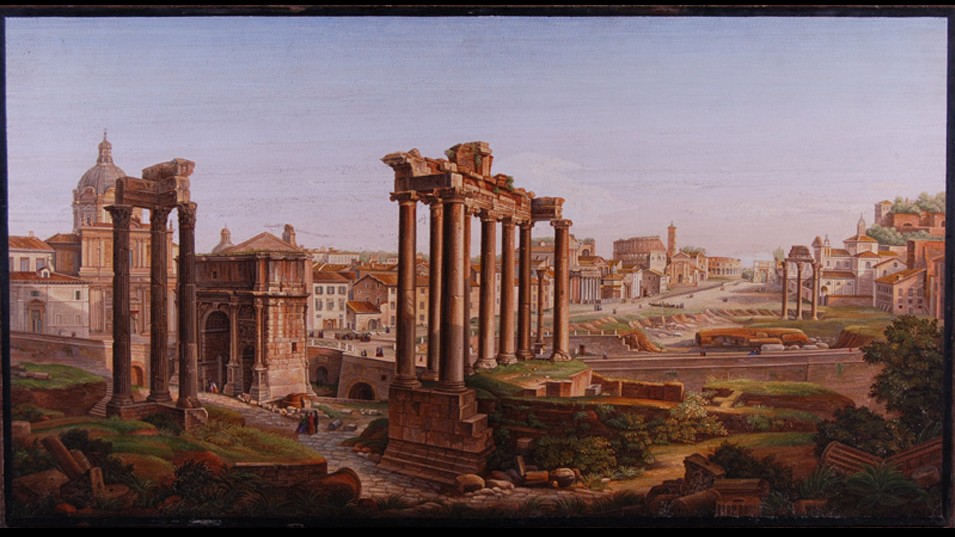
Well, here I am, once again sitting in the passenger seat of my Dad's car on our final trek to Melbourne, and since I have been reading, sleeping, or driving for most of the day, I might as well fix up a couple of my reviews while I am sitting here (and since I have a smartphone, and my Dad has this adapter that allows me to plug my laptop into the cigarette lighter, I might as well make use of it – such are the benefits of having an electronic engineer as a father).
Lucretius (I wonder if there is a connection with Star Trek) wrote this treatise on the natural world some time during the 2nd century BC. The period is important because it gives us an idea of the background in which the text was written. In a way it is probably one of the last ancient texts that have a scientific feel to it since most later philosophical texts (unless they dealt with medicine) focused mainly on ethics (with maybe the exception of Ptolemy), as opposed to scientific explanation (though there are probably a lot that have been lost). It wasn't until the renaissance that people began to once again question the nature of the world in which they lived.
The reason behind this is probably two-fold. Firstly, there was no need for industrial development namely because the culture was a slave based culture. Who needed machines when you had slaves to do all of the menial tasks. This can actually be seen in the United States in the lead up to the civil war, as well as in England, because in the North, where slavery was illegal, there was a lot of industrial development, while in the South, where slavery was legal, the society was still very much an agrarian society. The second reason was simply that nobody saw a need to actually question the world around them. As far as anybody was concerned, if something happened, then it was because the gods had willed it to happen, and there was no need to venture beyond that (and even then, to suggest that the gods didn't exist, even in Rome, was nothing short of blasphemous).
Lucretius wrote at an interesting time: it was after the decline of the Greek culture and during the rise of the Roman culture. Lucian wrote in Latin, but at this time Latin was still a very basic language, used mostly for trade and war. However the Greeks had already had a developed language that was being used much more culturally, which suggests that what Lucretius began was the slow morphing of the Latin language, as well as the Roman culture, into the culture that ended up producing the greats such as Cicero and Tacitus, among many others.
Lucretius was not the first to write a treatise that was enquiring into the nature of the world. This had been begun centuries early, almost as early as the Seven Sages of antiquity. There were sages like Democritus who developed the idea of the atom, Aristotle who wrote treatises on zoology, and even Plato dabbled in writing a scientific treatise (not that there was a distinct field of study at the time because back then everything was philosophy). The person, however, who influenced Lucretius the most was a guy named Epicurus.
Now, during this period there were three popular philosophies: the Epicurians, the Stoics, and the Cynics. I will describe these philosophies in a nutshell: Epicurians pretty much believe 'if it feels good, do it'; Stoics believe 'no pain, no gain'; and Cynics believes 'life sucks, and then you die'. Okay, that is probably being very basic description of each of these philosophies, but that is how I remember them. Mind you, we get the term stoic from the stoic philosophers, and the word cynic from the cynic philosophers.
It is interesting to see how Lucretius understands the universe, and in a way there is a lot of what we understand in his ideas: such as the idea of the atom, that everything is made up of atoms, that there is space between the atoms which determines the hardness of the objects. We also know that Lucretius comes to his understandings through observation, something that is done very much today, however there is no well defined scientific method in the way that he performs his enquiries. Another aspect that we see is the idea of the vacuum, which Lucretius suggests is the space between the atoms. However his understanding of a vacuum is different to our understanding because he does not necessarily see the air as molacules. Because he can see anything (despite being able to feel wind, which demonstrates, at least to me, that there is something there) then he assumes that there is nothing there. Further there is no concept that nature abhors a vacuum.
Lucretius seems to see everything in the form of atoms, though this is not unusual today in modern physics where certain elements have both wave and particle like properties, however we must remember that much of what Lucretius was writing about was little more than educated guesses. Basically he had come up with a theory, based on observation, and used this basis to try to explain everything. Light (and darkness) are particles that hit the eyes, which allows us to see. Sound is also made up of particles, however we note that he does not seem to understand the concept of waveforms. By saying this I refer to where he tries to understand why one can hear sound through solid objects. We know this because the sound hits the object causing the object to vibrate, which then causes the air behind the object to also vibrate and thus continue the sound wave. We also notice, interestingly, that his concept of colour comes, once again, from particles. An object has a certain colour because the particles on that object also have that colour.
It is ideas like this that makes a typical modern like me baulk, namely because even though I may have only completed year 12 physics, I still remember quite a lot of it, and as such know that what he is suggesting is basically wrong. I know that an object has a certain colour because the object absorbs that particular part of the colour spectrum. However, Lucretius was not working from much because there was not all that much before him. In a way Lucretius is no different from the early scientists of the modern era in that much of what he was writing about were educated guesses, and it was only after further study and experimentation that we have come to understand that the beliefs of those that came before us were, well, wrong. Once again I point to the idea of light travelling as a wave. Many of us who do not understand, or have not been taught, advanced Physics believe that is the case, but those of us who know advanced Physics know that light can also travel as a particle (it's called a photon).
The funny thing that I have noticed is how much of our science is still actually based on the findings of Lucretius. The wave particle duality of light aside, we still understand sight as working on the basis of things striking the retina in our eyes. Lucretius had an understanding that the eyes were more than simply windows, or doors, that allowed the brain to see out (namely because he points out that if you remove the eyes then, well, you can't see) but rather an integral part of how we see. The same goes with the idea of smell, that we smell things because particles drift into our nose which causes the nerves in our nose to react to the particle. While Lucretius may not have had a full understanding of the nervous system, he still understands the reactions and senses that are caused when the body feels pain.
As for religion, I was going to suggest that Lucertius is a 'functional Athiest' namely that while he believed in the gods, he does not believe that they have any power or control over the way the universe functions. However I thought about this for a bit and realised that it is not that he is an Atheist, but more of what one would consider an ancient version of a Deist. The reason I say that is because he still believed in the polytheistic religion of the time, but responded in the same way to the gods that a modern Deist would respond to Christianity, namely that while God may exist, he has little or no influence, or care, over the operation of the universe in which we live.
This brings me onto Lucretius' idea of the soul. He believes in the soul but not in its immortality. In fact he goes to great pains to demonstrate that before birth the soul, and the mind, of that particular individual, does not exist, and as such, after death the soul ceases to exist as well. Lucretius has no interest or time for theories and ideas relating to the afterlife (which is probably why he holds to the Epicurian idea of if it feels good, do it). In fact, he seems to think that the whole idea of the afterlife, and in particular Hades, is absurd (and spares no haste in pointing that out). As such, Lucretius does not believe in reincarnation either, so it is clear that his ideas are purely materialistic, in much the same way that modern materialism holds their beliefs.
It is interesting to compare some of Lucretius' thoughts to the what modern evolutionists accept today. One of the things that I noted was Lucretius' ideas of the origins of various parts of the body, such as the limbs. The modern belief is that a need arose therefore the body adapted an organ to meet that need. However Lucretius holds the opposite view in that the organ exists prior to the need arising, and when the need became apparent, the body was able to meet that need with the limb. As such it appears that Lucretius is not an evolutionist (and the evolutionists claim that it is the Christians that are backward). Further, Lucretius believes in a young Earth, but his argument in this regard is incredibly flawed. His argument is that because there is no recorded history dating back before the Theban and Trojan wars then, ergo, there must not have been anything, therefore the Earth is young. Obviously he is not an anthropologist (nor has he read Herodotus, which I would find very surprising from such a learned person). Mind you, similar flawed reasonings (and educated guesses) are still made today in relation to the arguments verses the young Earth and old Earth theories. As for me, I find both postulations (namely, the Bible says the Earth is 6000 years old, therefore it must be so, to which I respond by saying, no it doesn't; and it is the best theory we have, so we might as well stick to it, to which I respond, but what if it is wrong) have their flaws.
Mind you, Lucretius' section of cosmology seems to read more like an evolutionist's, in that it is suggested that he may have come up with something similar to the big bang theory thousands of years before modern science had postulated it. It seems that he believes, just as the modern cosmologist believes, that the universe began as a chaotic mess and that it was only through the collision of particles (which is the word that I feel obliged to use, because that is what I understand Lucretius' atom to be, though it is interesting that in the modern world we seem to continue to break this building block into smaller and smaller things – these days we have quarks, which are sub-subatomic particles). However, I also notice that Lucretius believes that the Earth is stationary and that the stars, sun, and moon, move around the Earth. In reponse to that, I wonder why the Catholic Church branded Galileo as a heretic when their ideas were actually taken from the pagans. Also, finally, it is interesting to see how he describes that lightning is caused by the collision of particles in the clouds (which themselves are made up of particles) and points to the sparks that are created when certain rocks are smashed together. Once again, it goes to show how many of Lucretius' theories came about through observation and educated guessing, which in many ways is how modern scientists come up with their theories.


 Log in with Facebook
Log in with Facebook 













